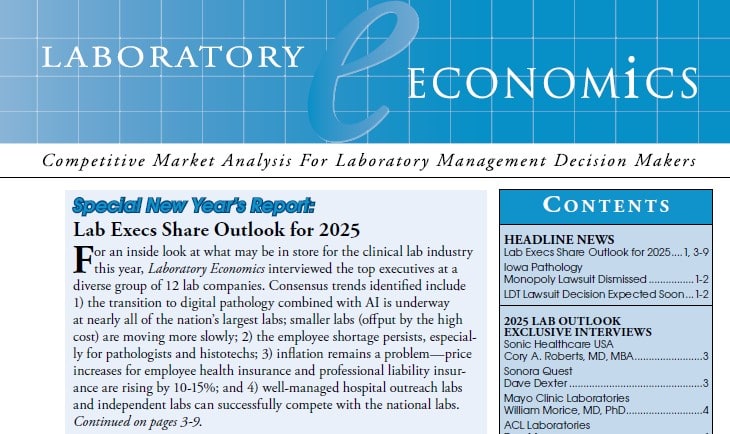AI helping Michiana doctors recognize health concerns
MICHIGAN CITY, Ind. (WNDU) – As technological breakthroughs continue to break barriers, don’t be surprised if you see artificial intelligence (AI) used at your doctor’s office soon.
Across Illinois and Indiana, a company called Alverno Laboratories has partnered with different health systems, including Franciscan Health in Michigan City, to incorporate artificial intelligence (AI) into their practices.
Alverno offers advanced testing that doctors offices can’t do themselves, specifically-something called digital pathology. Instead of pathologists using traditional microscopes, pieces of tissue are put on a slide and then digitized so they can look it over on the computer.
“Pathologists can share cases with each other easily,” says Joel Markanich, director of molecular and anatomic pathology operations at Alverno Laboratories. “We have pathologists that work at hospitals across the state of Indiana that can have another pathologist look at that image digitally almost immediately, where in the past they’d have to physically send that glass slide, which could take a day, two days.”
Digital pathology helps to look through slides more efficiently, it can measure sizes of tumors, and pathologists can compare digital images from other clinics.
Here is where AI comes in… AI helps to generate “heat maps” to overlay on slides, find abnormal cells that could signify cancer, and it helps let pathologists know when they need to do more testing.
“It’s not replacing a pathologist, it’s not changing the fact that you’re still having a trained medical doctor or pathologist looking at these cases, it’s just that they have these extra tools that are helping them along,” Markanich says. “The idea is that this will create efficiency gains.”
This helps speed up the diagnosis process, allowing pathologists to prioritize more challenging cases.
This also helps alleviate some stress patients are feeling when waiting on a diagnosis.
Right now, Alverno Laboratories is still in the beginning stages. But the company is looking to expand this digital imagery and look into other health concerns like melanoma.






